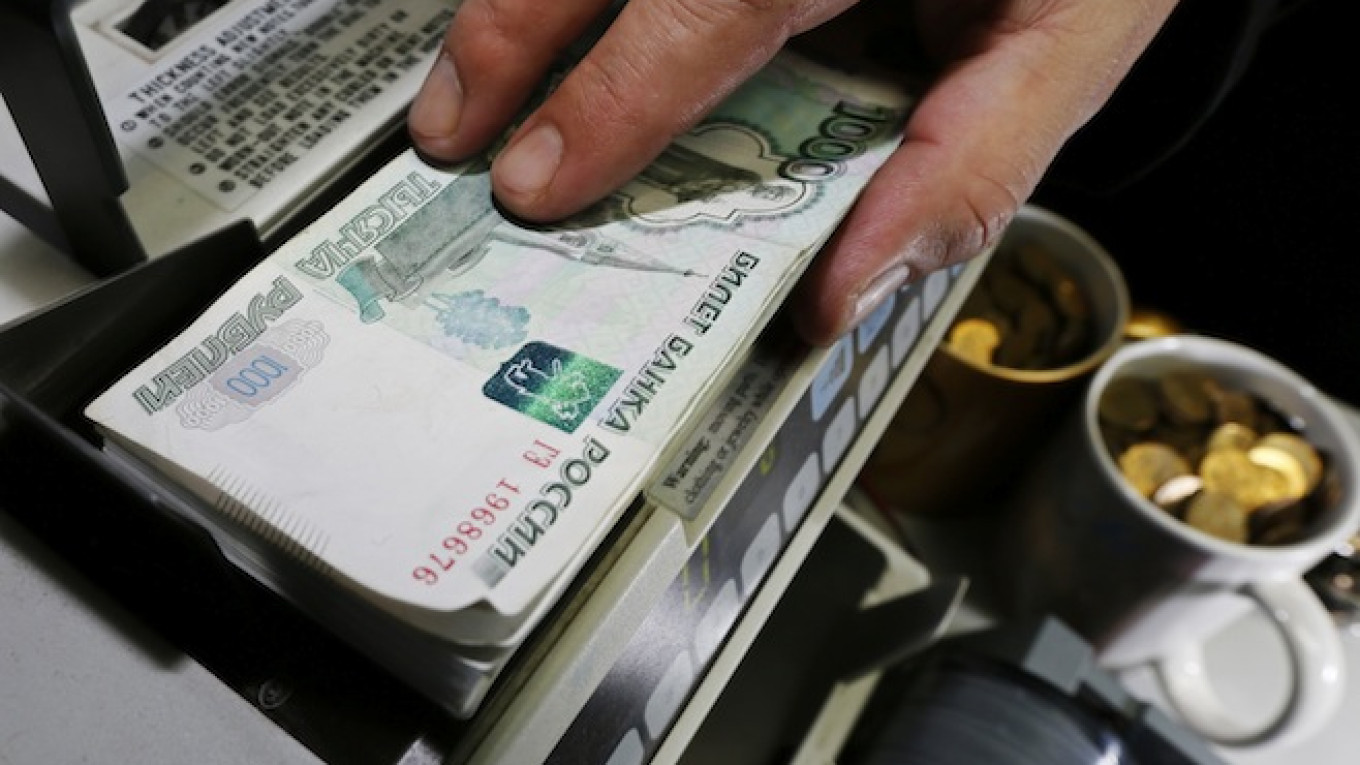Russia's ruble gained sharply Wednesday afternoon after several days of volatile trading and a Central Bank decision to float the currency, with investors cautious after the bank warned of large forex market interventions to punish "speculators."
At 8 p.m. in Moscow, the ruble was 1.4 percent stronger against the dollar at 45.72 and 1.7 percent stronger at 57.85 versus the euro.
The moves echo trading in recent days, when there were intra-day swings of several percent after statements by President Vladimir Putin and other Russian leaders intended to support the ruble.
The ruble has fallen nearly 30 percent versus the dollar this year, with most of the decrease coming in the last three months as sanctions made it harder for banks and companies to refinance debts and tumbling oil prices hurt government revenue.
Prices for benchmark Brent crude futures, which slipped below $81 a barrel on Wednesday and were near their lowest since 2010, applied new pressure, as did reports of shelling in eastern Ukraine despite a fragile cease-fire.
Factors lending support included comments in which German Chancellor Angela Merkel said Tuesday that there were no plans at present for further economic sanctions on Russia over the Ukraine crisis, and a Central Bank move to restrict those betting against the ruble.
On Monday, the Central Bank let the currency float, a step it had planned by the end of the year as part of a shift to an inflation-targeting regime.
Although regular interventions will stop, the bank said it would keep the market in check and punish those betting against the ruble by carrying out large, ad hoc interventions.
A Message from The Moscow Times:
Dear readers,
We are facing unprecedented challenges. Russia's Prosecutor General's Office has designated The Moscow Times as an "undesirable" organization, criminalizing our work and putting our staff at risk of prosecution. This follows our earlier unjust labeling as a "foreign agent."
These actions are direct attempts to silence independent journalism in Russia. The authorities claim our work "discredits the decisions of the Russian leadership." We see things differently: we strive to provide accurate, unbiased reporting on Russia.
We, the journalists of The Moscow Times, refuse to be silenced. But to continue our work, we need your help.
Your support, no matter how small, makes a world of difference. If you can, please support us monthly starting from just $2. It's quick to set up, and every contribution makes a significant impact.
By supporting The Moscow Times, you're defending open, independent journalism in the face of repression. Thank you for standing with us.
Remind me later.


